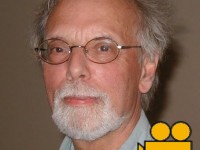This article introduces to the Constructive Developmental Framework (CDF), addressing those readers who want to learn to use the methodology. CDF is seen as a comprehensive framework for consulting and coaching, much like NLP, but on a higher level of consciousness. Its main intellectual strength lies in establishing a methodology for the deconstruction, through dialog, of less developed thinking and meaning making, for the sake of client benefit. Viewed more broadly, CDF is a framework for “coaching for society” that can lift individuals’ and teams’ developmental level. What is CDF -- An Introduction for Beginners Read More...
Tag: Team Development
Effective Team Coaching: Juggling Personalities and Roles
Teams are usually viewed as "flat", disregarding that each of their members is active on a specific level of accountability associated with a specific universe of discourse. What team members are thinking and saying is thus not determined not only by their developmental size of person, but also by the size of their organizational role, and their understanding of the relationship between the two. A team coach or team leader who is disregarding this fact is going to be less effective that s(he) could be. In this webinar, Otto Laske outlines a typology of teams in which both team members' size of person and size of role receive due attention. Read More...
Coaching Goes Developmental
For a long time, there was only coaching focused on client's behavior, not mnd-set, but this is changing. The International Coaching Community (ICC), in collaboration with the Interdevelopmental Institutee (IDM) is starting an introductory course on evidence based coaching based on research in adult development. This gives experienced coaches the opportunity to build a niche for themselves as developmental coaches in the professional sense of the term. To get a feel for this kind of coaching work, go to the course information found at: A link to the September 16 free webinar for this course is found at: To register for the course on developmental coaching for individuals go to: http://www.internationalcoachingcommunity.com/academy/academy-calendar?category_id=1&lang=enregister Read More...
Buchbesprechung von Otto Laske’s “Dialectical Thinking for Integral Leaders: A Primer”
Buchbesprechung Otto Laske, Dialectical Thinking For Integral Leaders: A Primer Integral Publishers, ISBN 978-0-9904419-9-1, 2015 (June) Zusammenfassung In dieser Buchbesprechung hebt Michael Habecker die wesentlichen Gedanken eines jeden Kapitels des obigen Buches heraus und schafft dadurch eine klare Zusammenfassung der Intentionen von Otto Laske. Michael Habecker Das neue Buch von Otto Laske, als eine Zusammenfassung seiner Arbeit zum dialektischen Denken, leistet Wesentliches zur Theorie und Praxis menschlichen Denkens als eines unserer wichtigsten Instrumente und Möglichkeiten zum Erkennen und Verstehen von uns selbst, anderen Menschen und der Welt als Ganzes. Es richtet sich im Titel an „integrale“ Führungspersonen und versteht sich in diesem Sinne als ein Angebot an diesem Personenkreis und an die integrale Theorie und Praxis als Ganzes. Dieser Primer fasst die Inhalte des Buches Measuring Hidden Dimensions: The Art and Science of Fully Engaging Adults Band 2 von Otto Laske zusammen, von dem es noch keine deutschsprachige Übersetzung gibt. Übersetzt ist jedoch der Band 1, Potenziale in Menschen erkennen, wecken und messen: Handbuch der entwicklungsorientierten Beratung, in dem es um die sozial emotionale Entwicklung des Menschen geht, welche der Autor klar von der Entwicklung dialektischen Denkens, als dem Gipfel erwachsenen kognitiven Denkens unterscheidet, um die es in dem Primer... Read More...
Press Release for Otto Laske’s New Book “Dialectical Thinking for Integral Leaders: A Primer”
To appear in July 2015 at Integral Publishers Integral Publishers (integralpublishers.com) and Otto Laske, Director of the Interdevelopmental Institute (www.interdevelopmentals.org), have joined forces in order to publish a book demonstrating by examples how leaders of large forums, organizations, institutions and board of directors can quickly acquire patterns of thinking that hinder them from getting stuck in seeing the world in purely static, “logical”, terms. Leaders have long yearned for ways of excelling in focusing their thinking on processes, relationships, and patterns of transformation that reflect the complexity and incessant change that is their daily bread. Especially when working with teams, leaders have worked hard to create collaborative intelligence, by exercising ways of thinking that, while logical, transcend formal logical identity thinking by integrating “what does not fit”. Rather than wanting to fall back into orthodox systems thinking, they have craved thinking tools that are as transformational as the world in which they have to act. Leaders need to search no further. Author Otto Laske has first-hand experience with schooling thought leaders in a new way of breaking down barriers of complexity and thereby making complexity manageable. In his book Dialectical thinking for integral leaders: A primer (2015, 130 pp.) he... Read More...
How to cope with cognitive differences in circles (teams)?
This video addresses crucial issues in how to re-organize work so that individuals can deliver work in flexible role systems based on their talent. The notion put forward is that to create organizations following the model of lean and mean start ups will not do away with but will increase the requirement of deep, dialectical thinking. A few major pointers to the required structure of thinking are offered. Read More...

